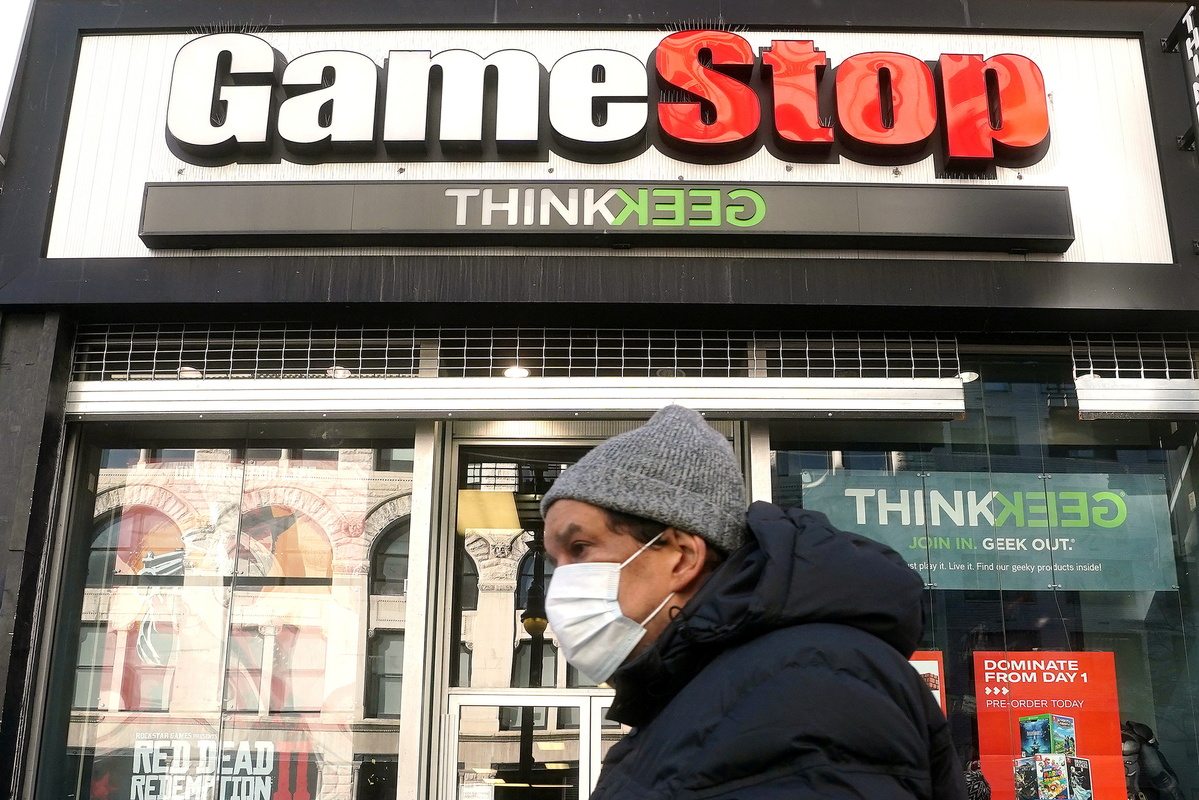Wealth gap marks GameStop battle lines
China Daily | Updated: 2021-02-01 08:15

After massive spikes in the stock prices of GameStop and AMC, those hedge funds that had bet big on the downfall of these companies, have suffered heavy losses, spurring the trading platform Robinhood and other retail stock trade companies to freeze individual trading.
This is not a normal trading phenomenon, but an outbreak of the US' political, economic and social problems in the capital market.
The excess liquidity in the United States has created a frenzy at the end of the stock market bubble, showing that trading is nothing but a gambling game.
There are two kinds of investors: those who want to get rich and those who want to keep their wealth. When the behavior of the second type of investor becomes the same as the first person's behavior, it means that the market has come to the end of the speculative boom.
As a matter of fact, the "uprising" of smaller investors represents a resistance against the unfair distribution of wealth in the US capital market. For too long, the market has been dominated by the Wall Street, as the big investors have absolute advantages-all kinds of hedging tools, inside information, capital scale and leverage. No wonder the institutional investors and big shareholders monopolize most of the bull market dividends.
This has intensified the wealth polarization as most retail investors have failed to benefit significantly from the market. This is the reason for the retail investors' anger and opposition to the short-selling of institutions. The abrupt and insane rise of GameStop's stock price has conveyed a clear signal that the retail investors are intent on showing their existence, unity and strength.
The US has fallen into a trap that it cannot escape. That is to say that the financial institutions that were the culprits for the 2008 financial crisis were not held accountable, instead they were rescued as being too big to fail.
Since then the continuous quantitative easing policies in the US have provided the market with excess cheap liquidity, fattening these agencies and the rich people again, and the dividends trickling down to the smaller investors and common wage-earners are quite limited.
Statistics show the wealth of billionaires in the US swelled by 57 percent on average last year, while wages have been cut, the unemployment rate has soared and house prices have increased.
The policy of supporting the rich and the widening gap between the rich and the poor are plunging the US deeper into crisis.
























